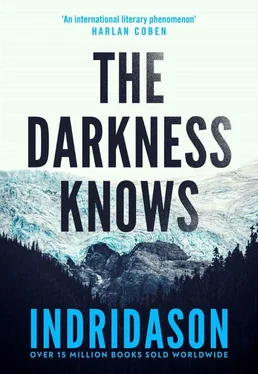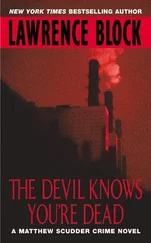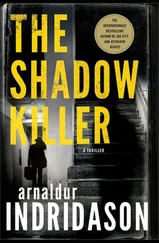‘He insists it’s you he wants to see,’ Marta said. ‘He won’t talk to us.’
‘You told him I’ve retired?’
‘Hjaltalín knows that. He wants to talk to you anyway.’
‘What’s he saying?’
‘Nothing new: he’s innocent.’
‘He used to own a big four-by-four.’
‘Exactly.’
‘Which would have been capable of driving onto the ice cap.’
‘Yep.’
‘Are you allowing him visitors? Isn’t he in custody?’
‘We’d make an exception in your case,’ Marta said. ‘You’d be working for us in a temporary capacity — as a consultant.’
‘I have absolutely no interest in getting mixed up in this again, Marta. Not now. Could we talk about it later?’
‘We don’t have much time.’
‘No, I realise that.’
‘I’d never have believed Sigurvin would turn up.’
‘Thirty years is a long time.’
‘Don’t you want to see the body?’
‘Already have,’ Konrád said. ‘He looks like he died yesterday.’
‘Ah, of course — Svanhildur’s been in touch with you. So, are you going to see the prisoner?’
‘I’m retired.’
‘All right, no need to go on about it.’
‘I’ll talk to you later.’ Konrád rang off.
The truth was he couldn’t stop thinking about Sigurvin and the visit to Svanhildur at the mortuary, but he was reluctant to reveal his interest to the former colleagues who’d been in touch over the last couple of days. He’d retired, he told them, and had no intention of going back, under any circumstances. Over thirty years had passed since they’d begun searching for Sigurvin. Since then Konrád had lost count of the people they’d interviewed, but no one had ever been charged. The investigation had quickly become focused on a man called Hjaltalín, but they’d never managed to prove anything against him. Hjaltalín had consistently denied ever having laid a finger on Sigurvin, and in the end they’d been forced to release him due to lack of evidence. The body had never been found: Sigurvin had simply vanished off the face of the earth.
And now he was lying in the mortuary, looking almost as if he’d only been gone a few days. Svanhildur hadn’t been exaggerating when she’d said his body was uncannily well preserved. Although they hadn’t embarked on the full post-mortem yet, a few facts had been established. Sigurvin was wearing the same clothes as he had been when he met his fate: trainers, jeans, shirt and jacket. The cause of death appeared to have been a heavy blow to the head with a blunt instrument. The skin had been broken and blood had been found on the back of his skull and on his clothes.
Konrád thought about all the years that had passed since the man died. He had sometimes imagined what the moment would be like; how he’d feel if Sigurvin ever turned up. Although he had long ago stopped searching, he’d never managed to put the case entirely behind him, and the suspicion that one day the phone would ring with the news that the missing man had been found had always been there, lurking just below the surface. Yet, ironically, when the news finally came, he’d found it almost impossible to process. Sigurvin’s fate had been a mystery for decades. They hadn’t even been sure he was dead, let alone had any idea how he’d died. Now they knew both the cause and the fact he had died at the time he went missing. They had never known exactly what he had been wearing when he vanished but now they could see for themselves. His body would provide those in charge of the inquiry with a variety of important new details, including a rough idea of the murder weapon. Those vital missing pieces were finally falling into place.
Konrád sat down at the kitchen table with a glass of red wine and lit a cigarillo. He sometimes smoked them when he felt a craving for nicotine, but apart from that he wasn’t a big smoker. The phone rang again. This time it was his sister, Elísabet. She asked how he was doing.
‘Fine,’ he said, sucking down smoke. ‘The phone hasn’t stopped ringing.’
‘I hear that bloody case is blowing up again,’ said Elísabet, who was known to all as Beta. Like everyone else, she had been gripped by the news reports about the body.
‘Apparently Hjaltalín’s trying to drag me into it,’ Konrád said. ‘They’ve taken him into custody and he wants to see me. They’ve told him I’m retired but he won’t take no for an answer.’
‘Does anyone ever retire from a case like that?’
‘That’s a question I’ve been asking myself.’
‘Aren’t you curious to hear what he’s got to say?’
‘I know exactly what he’ll say, Beta. He’ll say he’s innocent. The fact the body’s turned up won’t change a thing. We had nothing on him thirty years ago and we won’t find anything now, “because he’s innocent”. That’s what he’ll say. I’ve no idea why he wants to repeat it for my benefit.’
Beta was silent. They hadn’t been close when they were young, having been brought up in separate households following their parents’ divorce, but they’d been trying to make up for it ever since, each in their own way, though it wasn’t always easy.
‘You weren’t entirely convinced he’d done it at the time,’ she said after a moment.
‘No, unlike the rest of them. But he was always our most likely candidate.’
It was common knowledge that Hjaltalín had been the only serious suspect for Sigurvin’s murder in 1985 and that, despite a spell in custody, he’d never confessed. The police had failed to prove beyond all doubt that he’d been involved in Sigurvin’s disappearance. Yet he was the last person to have been seen with him, and the two men had reportedly quarrelled bitterly just before Sigurvin vanished. Hjaltalín was also known to have threatened him.
‘Have they asked for your help with the investigation?’ Beta asked.
‘No.’
‘But they want you to see Hjaltalín?’
‘They think he might tell me something he won’t tell them. He’s refusing to talk to them.’
‘Thirty years is a long time.’
‘He did a good job of hiding Sigurvin. The reason he got away with it was because we never found the body. The question is whether he’ll get away with it so easily this time round.’
‘But you had nothing on him.’
‘We had various things on him, just not enough. In the end, the prosecutor didn’t feel he had a good enough case to take before a judge.’
‘Don’t let yourself get drawn in again. You’ve left the police.’
‘Yes, I’ve left.’
‘Talk to you later.’
‘OK, bye.’
The discovery was all over the media but Konrád had got the inside story from Svanhildur. Ever since the body was recovered from the ice, four members of Forensics had been stationed on the glacier, conducting a search of the area. Police officers from the little west coast town of Borgarnes had been first on the scene after the German tour group had rung the emergency number. The local volunteer search and rescue team had also been called out, and this had alerted the press to the fact that something was up. The police officers from Borgarnes had made their way onto the ice, despite being inadequately equipped, and had confirmed that the body was that of a man, aged around thirty, who had evidently been there a long time. They had been ordered by their superior not to touch anything, and to keep the tourists well away. At this point, Forensics in Reykjavík had been notified. By then, the Borgarnes rescue team had reached the edge of the glacier in their specially equipped vehicles. They conveyed the Germans down to the hotel at Húsafell, along with their guide, a woman in her early sixties called Adalheidur, who had found the body. That evening, the group had travelled back to Reykjavík. Detectives from CID had questioned the woman closely and spoken to the Germans with her help. An older man, who informed them that he was a doctor, explained that he’d brushed some snow from the man’s face but that otherwise they’d been careful not to touch anything.
Читать дальше












